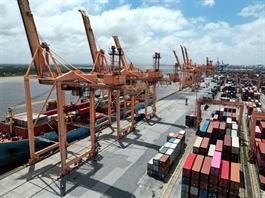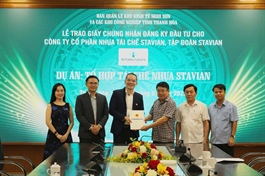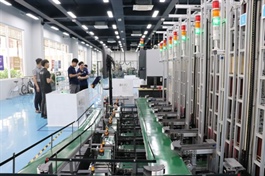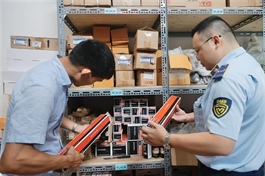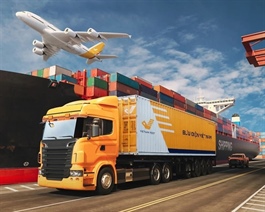"Digital passport" for Vietnamese goods to reach global markets
"Digital passport" for Vietnamese goods to reach global markets
Traceability and verification are an essential trend in the digital economy.
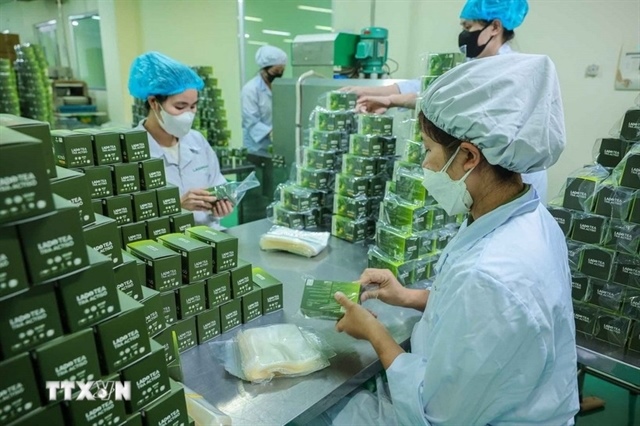
Production of herbal-based products at Lam Dong Pharmaceutical JSC. —VNA/VNS Photo |
Goods traceability is not only a filter to prevent counterfeits and substandard products but also acts as a "digital passport" for Vietnamese goods to reach international markets.
In the first half of 2025, 50,736 violations were detected and handled nationwide. Among these, more than 36,600 cases involved commercial fraud and tax evasion, and nearly 3,300 others were related to counterfeit goods and intellectual property violations, according to the latest report by the National Steering Committee for Anti-smuggling, Trade Fraud and Counterfeit Goods (National Steering Committee 389).
During the peak month of anti-smuggling and counterfeit goods (May 15 – June 15), authorities tackled 10,437 cases, an 80.51 per cent surge compared to the previous month.
At a recent seminar on verification and traceability, Phạm Minh Tiến, deputy director of the National Data Centre under the Ministry of Public Security, emphasised that counterfeits have become a pressing issue, infiltrating even supermarkets and hospitals. This poses a major challenge to regulatory authorities and causes concern among consumers.
Therefore, ensuring the authenticity, transparency and traceability of goods is not only essential for State management but also a prerequisite for strengthening consumer confidence and supporting international integration.
One major obstacle, according to Tiến, is the lack of a unified identification code system nationwide.
Data is fragmented across various ministries and sectors, traceability remains superficial and the supply chain, from raw materials to production and consumption, is not fully tracked. Moreover, there is limited oversight of goods on e-commerce platforms, and consumers lack effective tools to verify authenticity.
Authorities also cite reasons such as manual and passive handling, lack of strict control, non-compulsory participation by businesses in traceability systems, poor integration between traceability and quality control, and the absence of a centralised database for goods evaluation and management.
A gateway to the world
Traceability and verification are an essential trend in the digital economy. Vietnam can fully leverage this to build a transparent, efficient, and globally competitive digital economy.
Bùi Bá Chính, acting director of the National Numbering and Barcodes Centre under the Ministry of Science and Technology, noted that countries like the US, Canada and EU member states have implemented full-chain traceability and product identification systems, from production to export. Việt Nam can do the same by transparently declaring and monitoring products with public oversight.
Marion Chaminade, Agricultural Counsellor at the French Embassy, shared examples from France and the EU where traceability is mandatory for every component of a product or service, from farm to table, to ensure transparency. She highlighted the adoption of advanced technologies, including blockchain, as effective tools to reduce fraud and strengthen consumer trust.
Nguyễn Huy, representing the National Data Association, observed that while many large Vietnamese companies already have authentication systems for their products, these are often not based on national or international standards and are typically limited to internal networks. Moreover, such systems often lack validation from state agencies.
According to Huy, this requires coordinated management from central to local levels, universal implementation across enterprises and international interoperability.
- 16:51 25/07/2025







